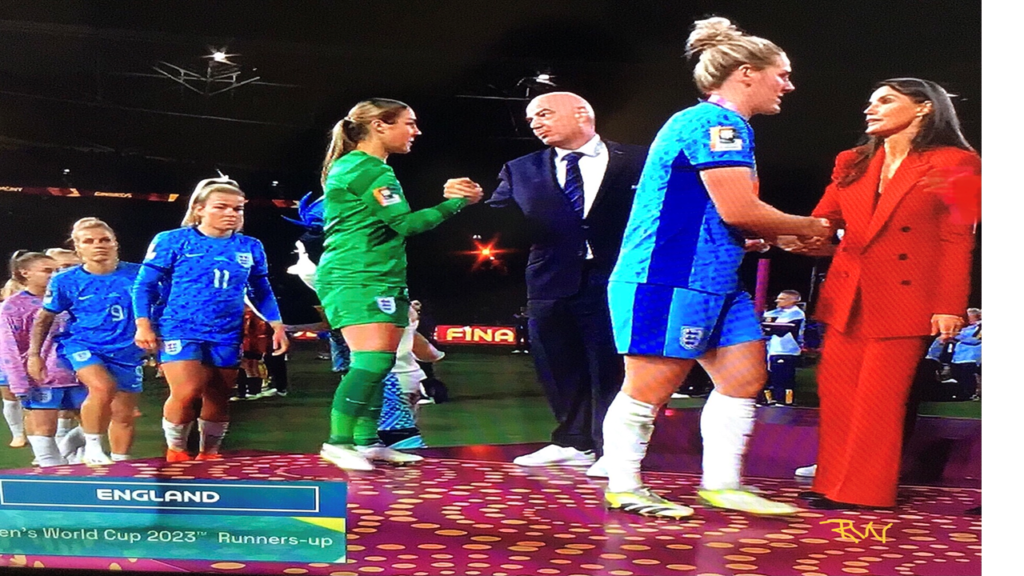
Spain emerged victorious in a thrilling showdown against England, claiming a 1-0 triumph in the Women’s World Cup final. The electrifying match, held at Stadium Australia in Sydney, marked the culmination of a record-breaking tournament that has ignited unprecedented interest in women’s soccer.
The game’s lone goal came courtesy of a brilliant strike from Olga Carmona, setting Spain apart from their English rivals. The encounter was a rollercoaster of excitement, with Spain consistently creating the lion’s share of clear-cut opportunities. Carmona, who not only secured the decisive goal but also earned the title of player of the match, expressed the team’s determination: “We suffered, it was a difficult match (but) we always thought we were going to make it,” she shared in an interview with Spanish state broadcaster TVE.
La Roja’s journey to victory wasn’t without its challenges. A locker room dispute between the team and coach Jorge Vilda, alongside disagreements with the Spanish football federation, led to the absence of some of their star players from the tournament. Notably, their earlier setback with a 4-0 defeat against Japan in the group stage didn’t deter them. Spain’s display of attractive, attacking football throughout the tournament showcased their resilience and determination.
Coach Vilda, reflecting on their historic win, expressed his anticipation of the excitement back home in Spain. “I can’t imagine how much excitement there will be in Spain,” he remarked to TVE. “We are going to celebrate here and we don’t know when it will end.”
The Women’s World Cup final witnessed a festival-like atmosphere both on and off the pitch. Thousands of fans converged at Stadium Australia well before kick-off, with drummers and stilt walkers contributing to the vibrant ambiance. This historic match marked the first time both England and Spain had reached a Women’s World Cup final. For England, the victory drought continues, as they have not secured a major trophy since their men’s team triumph in 1966.
The women’s game in England has come a long way, considering the historic ban on women from official facilities until 1970. This Women’s World Cup has demonstrated remarkable progress and visibility for the sport, with England captain Millie Bright praising the tournament’s impact: “In terms of the women’s game … I definitely think we’re at our peak.”
Australia’s journey in the tournament also garnered immense attention, with the Matildas matches selling out months in advance and attracting record-breaking viewership. While Australia’s semi-final loss to England was a setback, the spotlight on women’s soccer has led to calls for increased support at the grassroots level. Matildas striker Sam Kerr emphasized the need for funding in development and grassroots initiatives.
Amidst the triumphs and challenges, the Women’s World Cup has not only showcased top-tier soccer but also ignited discussions about funding and support for the women’s game. In Australia, Prime Minister Anthony Albanese has pledged significant resources for women’s sport, acknowledging the need for improved facilities and broader accessibility to women’s sporting events.
As the curtains draw on this remarkable Women’s World Cup, the record-breaking attendance, exhilarating matches, and the ongoing dialogue about funding and support all point to a promising future for women’s soccer on the global stage.
